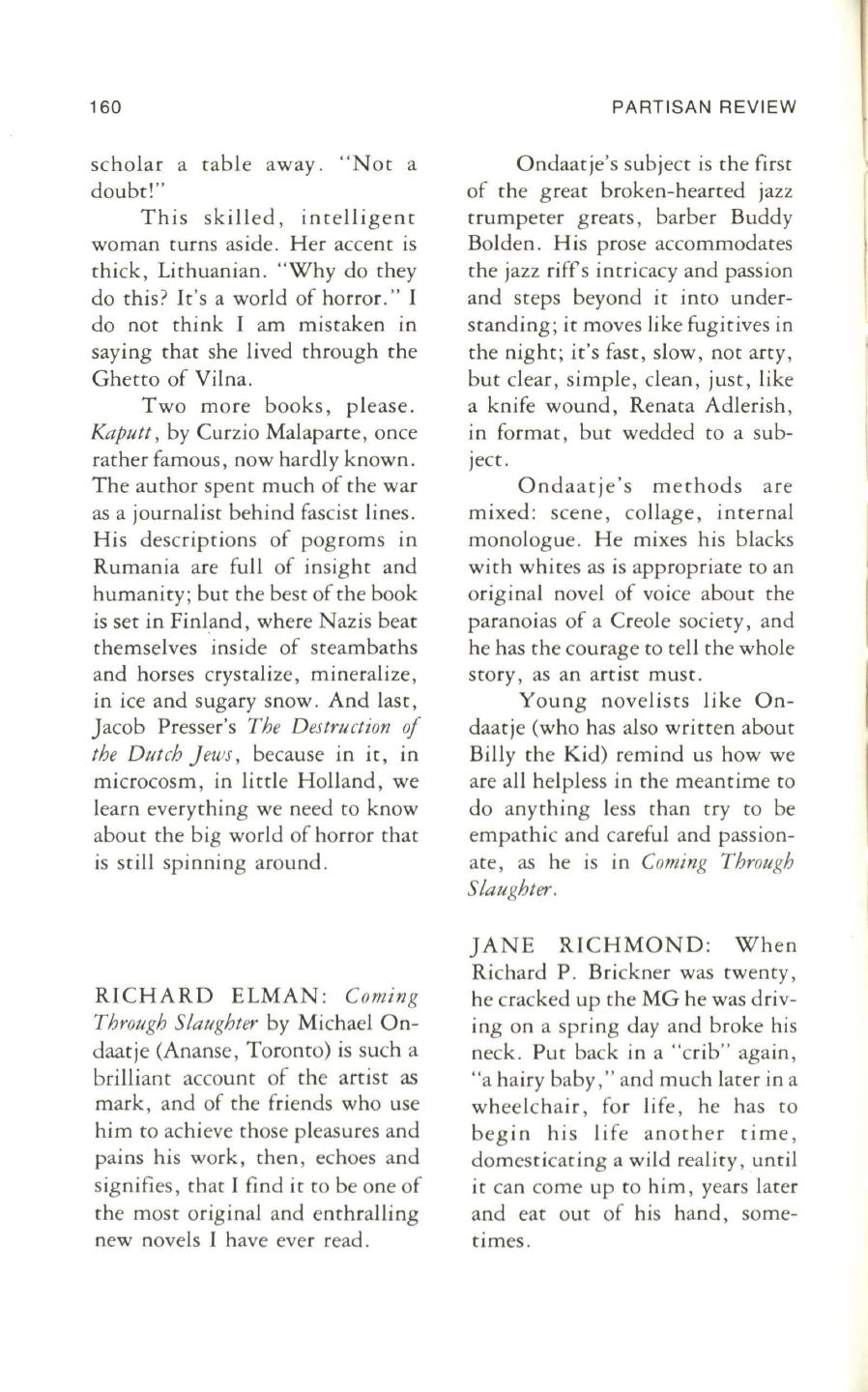
160
scholar a table away. " Not a
doubt!"
This skilled, intelligent
woman turns aside. Her accent is
thick, Lithuanian . "Why do they
do this? It's a world of horror. " I
do not think I am mistaken in
saying that she lived through the
Ghetto of Vilna .
Two more books, please.
Kaputt,
by Curzio Malaparte, once
rather famous, now hardly known.
The author spent much of the war
as a journalist behind fascist lines.
His descriptions of pogroms in
Rumania are full of insight and
humanity; but the best of the book
is set in Finland, where Nazis beat
themselves inside of steambaths
and horses crystalize, mineralize,
in ice and sugary snow. And last,
Jacob Presser's
The Destruction
0/
the Dutch Jews,
because in it, in
microcosm, in little Holland, we
learn everything we need to know
about the big world of horror that
is still spinning around .
RICHARD ELMAN:
Coming
Through Slaughter
by Michael On–
daatje (Ananse, Toronto) is such a
brilliant account of the artist as
mark, and of the friends who use
him to achieve those pleasures and
pains his work, then, echoes and
signifies, that I find it to be one of
the most original and enthralling
new novels I have ever read.
PARTISAN REVIEW
Ondaatje's subject is the first
of the great broken-hearted jazz
trumpeter greats , barber Buddy
Bolden . His prose accommodates
the jazz riffs intricacy and passion
and steps beyond it into under–
standing; it moves like fugitives in
the night; it's fast, slow, not arty,
but clear, simple, clean, just, like
a knife wound, Renata Adlerish,
in format, but wedded to a sub–
ject.
Ondaatje's methods are
mixed : scene, collage, internal
monologue . He mixes his blacks
with whites as is appropriate to an
original novel of voice about the
paranoias of a Creole society, and
he has the courage
to
tell the whole
story, as an artist must.
Young novelists like On–
daatje (who has also written about
Billy the Kid) remind us how we
are all helpless in the meantime to
do anything less than try to be
empathic and careful and passion–
ate, as he is in
Coming Through
Slaughter.
JANE RICHMOND: When
Richard P. Brickner was twenty,
he cracked up the MG he was driv–
ing on a spring day and broke his
neck. Put back in a "crib" again,
"a hairy baby," and much later in a
wheelchair, for life, he has to
begin his life another time,
domesticating a wild reality, until
it can come up to him, years later
and eat out of his hand , some–
times.


